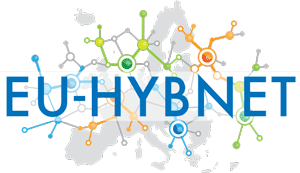Hanna Smith, Hybrid CoE’s Director of Research and Analysis, and Ruben Arcos, lecturer and researcher of communication sciences at Rey Juan Carlos University co-edited vol. 19 no 1. (2021) issue of the ICONO 14 journal: “Digital Communication and Hybrid Threats”. The special issue supported the EU-HYBNET project’s research component. Among the contributions were submissions from ICDS (Estonia), University of Tromsö (Norway) and National Institute for Intelligence Studies (Romania) – all EU-HYBNET partners. The special issue aims to address hybrid threats from a digital communication perspective, understanding the strengths and the vulnerabilities to hybrid threats of our digital ecosystems and societies, the processes, methods, and tools by which they can be exploited in coordinated campaigns and activities, and how to counter malicious strategic communications and influence.
Malicious information activities by state, non-state and state-backed actors are an essential part of hybrid threats and operations. Political warfare, proactive measures and covert action are not new, but ICTs and digital communication tools and channels offer unprecedented opportunities for coordinated hostile activities that exploit the vulnerabilities of our democratic societies for different purposes.
Cyberspace is recognized as a domain of operations in which digital communication channels can be exploited in campaigns directed against individuals, institutions and societies through information and influence in decision-making. While the content of the communication of symbolic interactions on social media platforms has varying degrees of visibility, coordinated inauthentic behaviors and the use of cyberproxies challenge detection and attribution. The militarization of information by hybrid threat actors can take multiple forms and raises the question of how to prevent, counter and respond to it without undermining the democratic rights and freedoms of our societies.
This special issue of ICONO 14 aims to address hybrid threats from a digital communication perspective, understanding the strengths and vulnerabilities to hybrid threats of our digital ecosystems and societies, the processes, methods and instruments by which they can be exploited in campaigns and coordinated activities, and how to counter malicious strategic influences and communications.
